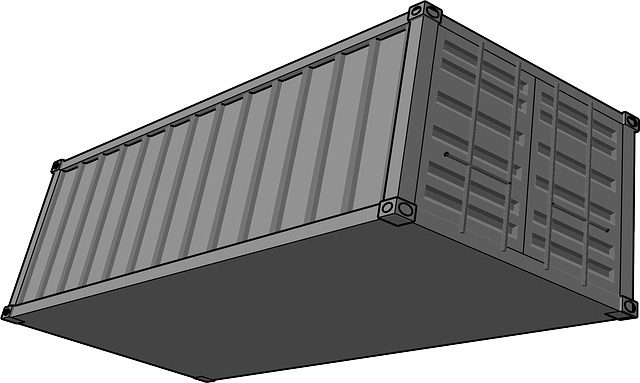Unforeseen events like natural disasters and cyberattacks can significantly impact businesses, increasing insurance costs. To mitigate these risks, especially in international trade, businesses must identify sector- and location-specific threats. Cargo coverage plans offer comprehensive protection against financial losses during transit, handling, and storage. Proactive risk assessment, diverse coverage, aligning policies with business growth, and advanced technology help minimize vulnerabilities. Balancing protection and cost efficiency through tailored insurance policies and rate comparison ensures optimal value for businesses involved in goods transportation.
Unforeseen risks can significantly impact insurance expenses, causing unexpected financial strain. This article guides you through managing these risks effectively. We’ll explore the profound effect of unforeseen events on insurance costs and delve into strategies tailored for businesses, focusing on the critical role of cargo coverage plans in risk management. Additionally, we provide actionable tips to assess and mitigate potential hazards, ensuring comprehensive yet cost-effective insurance policies.
Understanding Unforeseen Risks and Their Impact on Insurance Costs

Unforeseen risks are events or circumstances that are hard to predict and can have significant financial implications, often leading to unexpected insurance expenses. These risks can manifest in various forms, from natural disasters like floods or wildfires to more nuanced challenges such as operational errors, product recalls, or cyberattacks. For businesses, especially those involved in international trade with cargo coverage plans, understanding these risks is paramount.
When an unforeseen event occurs, it can cause substantial damage to property, interruptions in operations, legal liabilities, and financial losses. Insurance costs often surge in response to such events due to the increased claims and the need for broader coverage. Therefore, businesses must proactively identify potential unforeseen risks specific to their industry and location. By assessing these risks, they can make informed decisions regarding risk management strategies, including obtaining specialized cargo coverage plans tailored to mitigate specific perils.
The Role of Cargo Coverage Plans in Risk Management

Cargo coverage plans play a pivotal role in risk management for businesses involved in international trade and transportation. These specialized insurance policies are designed to protect against financial losses arising from potential risks associated with the shipment of goods, such as damage, theft, or loss during transit. By implementing robust cargo coverage plans, businesses can significantly mitigate unforeseen expenses and ensure the security of their valuable assets.
One of the key advantages of cargo coverage is its ability to provide comprehensive protection throughout the supply chain. This includes covering costs related to cargo handling, storage, and transportation, as well as offering compensation for any deterioration or non-delivery of goods. Such plans are particularly crucial for businesses dealing with high-value or delicate items, where even minor incidents can result in substantial financial implications. Effective risk management through cargo coverage allows companies to maintain operational continuity and avoid unexpected outlays, fostering a more stable and secure business environment.
Strategies to Assess and Mitigate Potential Hazards

When it comes to managing risk and avoiding unforeseen insurance expenses, assessing and mitigating potential hazards is a proactive approach that can significantly benefit businesses, especially those involved in shipping and cargo transportation. The first step involves identifying all possible risks associated with your operations, including those related to cargo coverage plans. This includes evaluating the type of goods being transported, the routes taken, storage conditions, and security measures in place. By creating a comprehensive risk assessment, you can pinpoint vulnerabilities and take targeted actions to minimize their impact.
Implementing effective strategies requires a combination of proactive measures and contingency planning. Diversifying your cargo coverage plans, for instance, can protect against unexpected events like natural disasters or political unrest that may disrupt supply chains. Regularly updating insurance policies to align with business growth and changes in the industry is also crucial. Additionally, adopting advanced technology solutions, such as GPS tracking and real-time monitoring systems, enables better visibility and control over cargo movements, enhancing risk management capabilities.
Tips for Opting for Comprehensive yet Cost-Effective Insurance Policies

When opting for insurance policies, a key strategy is to balance comprehensive coverage with cost-effectiveness. This means understanding your specific needs and tailoring your policy accordingly. One effective approach is to consider cargo coverage plans if you’re in a business that involves transporting goods. These specialized plans are designed to protect against the unique risks associated with shipping, offering peace of mind without unnecessary expense.
By evaluating your risk profile and selecting coverage options thoughtfully, you can avoid overpaying for insurance. Regularly reviewing your policy and making adjustments as your circumstances change is also crucial. Staying informed about potential discounts and comparing rates from different providers can further ensure you’re getting the best value for your money, ultimately saving you from unforeseen insurance expenses.
By understanding unforeseen risks and their potential impact on insurance costs, businesses can make informed decisions when it comes to risk management. Cargo coverage plans play a pivotal role in safeguarding against financial losses, allowing companies to navigate uncertainties with confidence. Implementing effective strategies for assessing and mitigating hazards is essential, as it enables businesses to choose comprehensive yet cost-effective insurance policies tailored to their specific needs. Through proactive measures and smart choices, organizations can avoid unexpected surges in insurance expenses while ensuring adequate protection.
